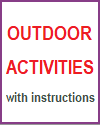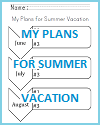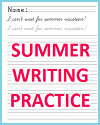Summer learning is crucial for K-12 students to prevent the "summer slide," where academic skills decline over the break. Engaging in educational activities—such as reading, math practice, or enrichment programs—helps students retain knowledge and start the new school year stronger. Studies show that consistent summer learning improves long-term academic performance, especially in math and literacy.
Beyond academics, summer education fosters curiosity and creativity through hands-on projects, camps, and real-world experiences. It also helps close achievement gaps by providing extra support for struggling students. Even informal learning, like visits to museums or science experiments at home, keeps young minds active.
By continuing education in the summer, students build discipline, confidence, and a lifelong love of learning, setting them up for future success.
|























































